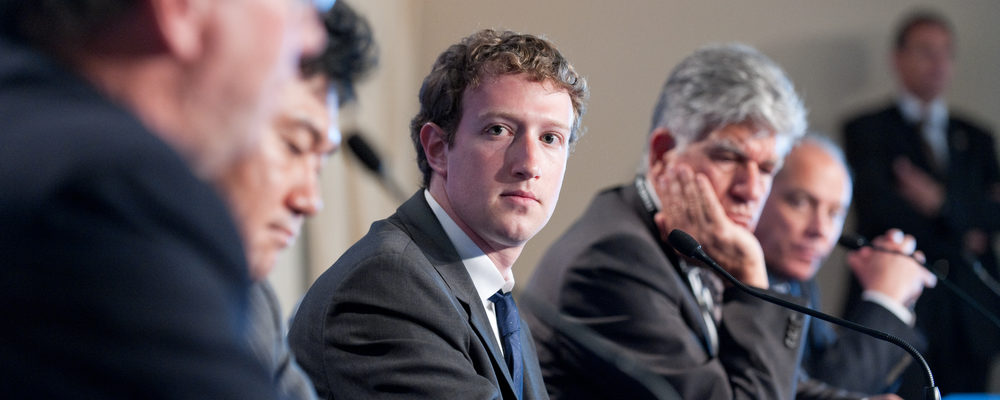Facebook chief Mark Zuckerberg has published a post on the social network heralding a decisive change to his leadership style. In the message, Zuckerberg reflects upon the annual ‘personal challenges’ he has undertaken every year from 2009 onwards, in order to become a more rounded individual and learn new capabilities. Those challenges have included learning Mandarin, building a domestic artificial intelligence for his home and reading 25 books in a year to stimulate book club-style discussions among his followers.
However, Zuckerberg notes, it will be strictly business for him in 2018. “The world feels anxious and divided,” he writes, “and Facebook has a lot of work to do – whether it’s protecting our community from abuse and hate, defending against interference by nation states, or making sure that time spent on Facebook is time well spent.”
He explains: “My personal challenge for 2018 is to focus on fixing these important issues. We won't prevent all mistakes or abuse, but we currently make too many errors enforcing our policies and preventing misuse of our tools. If we’re successful this year then we’ll end 2018 on a much better trajectory.”
He adds: “This may not seem like a personal challenge on its face, but I think I’ll learn more by focusing intensely on these issues than I would by doing something completely separate.”
As noble as this statement sounds, it has nonetheless attracted derision – as in this Fast Company column, which chides in its headline that Zuckerberg will spend the year “doing his job as CEO”. The insinuation is that Zuckerberg is now seen more as a ‘famous-for-being-famous’ figurehead than a hands-on leader – and knows it. How likely is it that Zuckerberg’s renewed commitment to day-to-day control will have the effect he desires?
The Institute of Leadership & Management's head of research, policy and standards Kate Cooper says: “There’s a strange presumption here that Zuckerberg should be capable of wrangling all of Facebook’s multifaceted issues by himself, and that he is the one figure who can follow up all of the abuses on the site and deal with its fake-news problem. What’s wrong with him getting the best people to do their best work at the company to their fullest capability?
“It’s actually rather difficult here to work out who is the most deluded. Is it Zuckerberg for thinking that he’ll have a tangible impact on these issues by withdrawing from his extracurricular challenges and turning up to the C-suite every day? Or is it the people in the media who take much the same view?”
Cooper explains: “CEOs have an important role, but their most crucial contribution by far is to hire the right people to manage the business. Below that, they must be sufficiently inspirational and encouraging in order to create an environment in which people are trusted, and will want to stay. The people whom Zuckerberg has chosen to run Facebook are the individuals who are going to make his vision happen.”
She adds: “In an organisation of that size, it’s hard to see how much real power he can wield, because the bulk of it should be appropriately delegated. His real job is to ensure that the organisation flourishes in an ethical way, and in turning his attention full time to Facebook’s more problematic areas, it certainly appears that he is living up to that requirement. The detail, though, will be up to those around him.”
For further thoughts on how to inspire your people, check out these learning resources from the Institute
Image of Mark Zuckerberg in business mode courtesy of Frederic Legrand – COMEO, via Shutterstock

